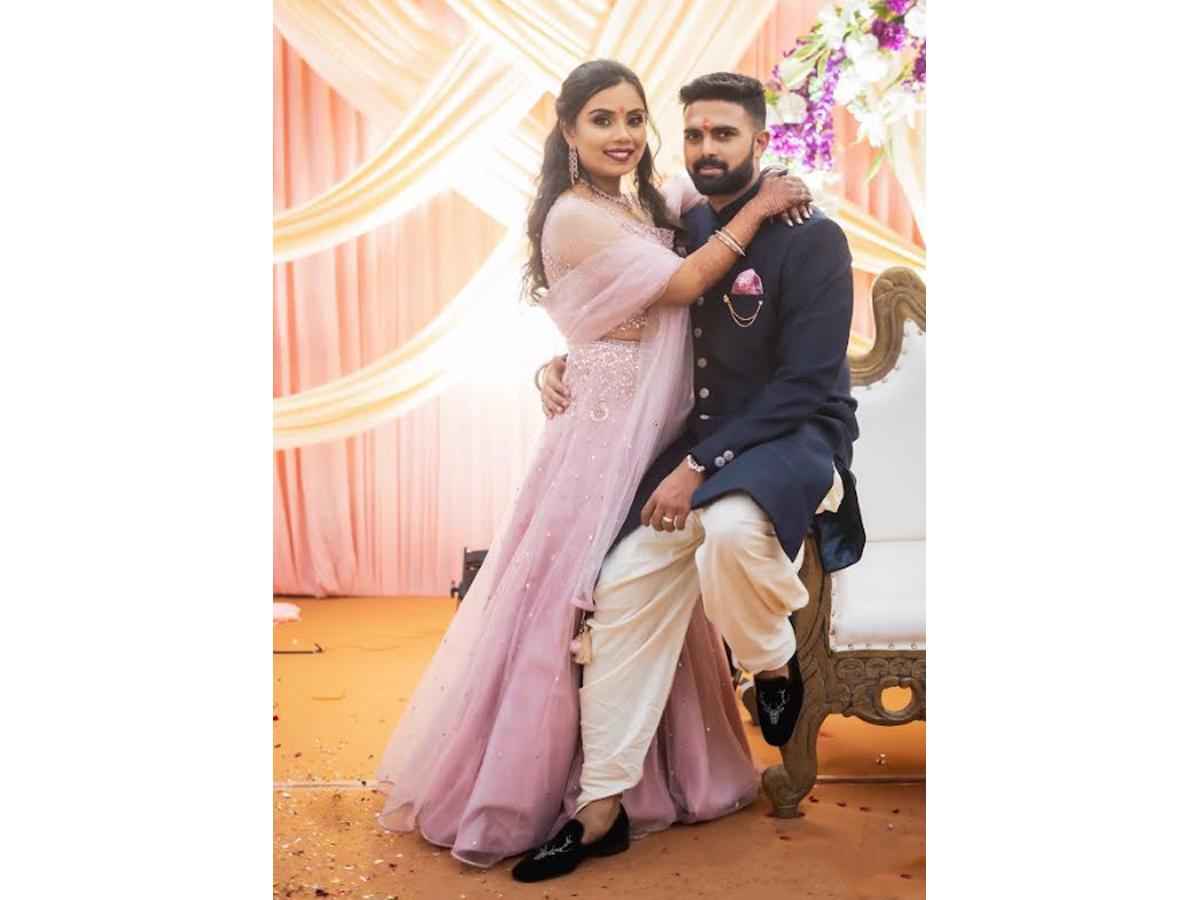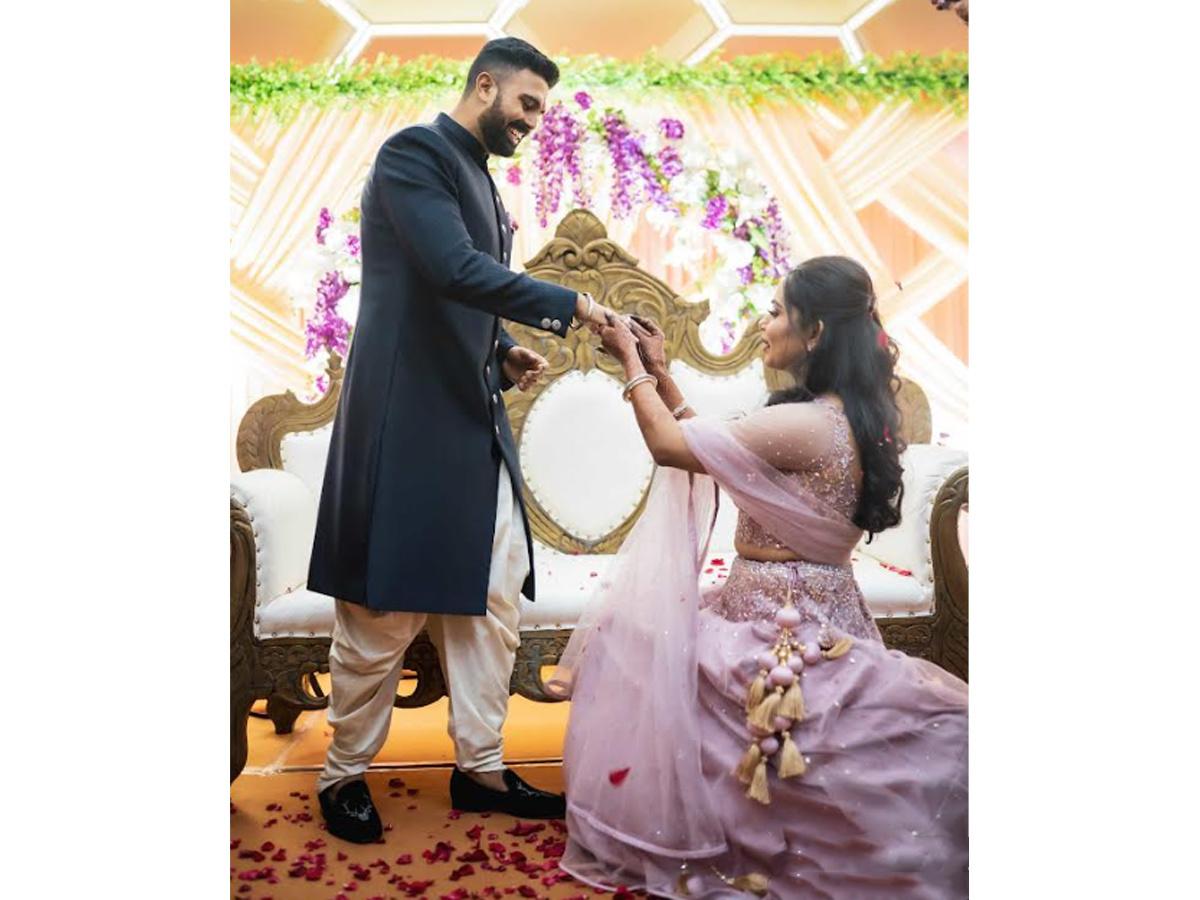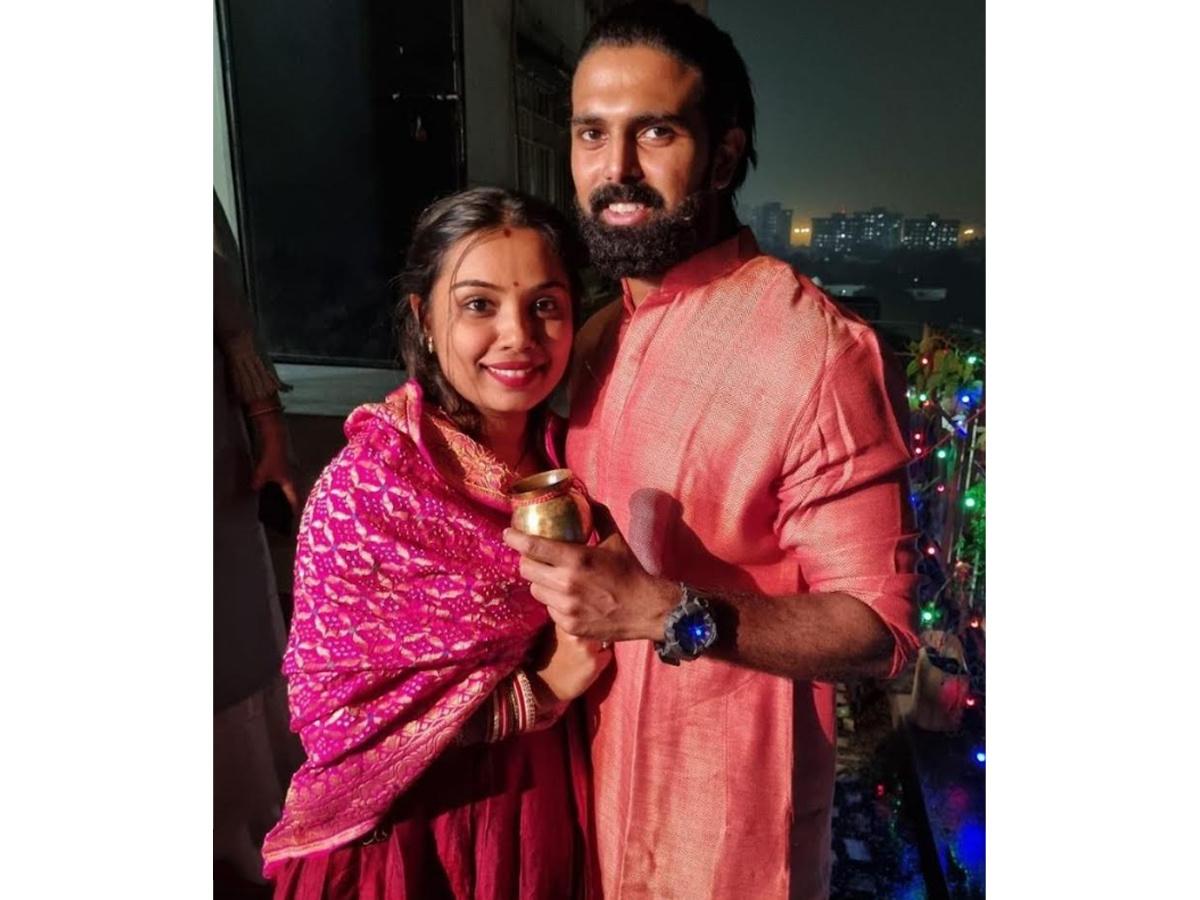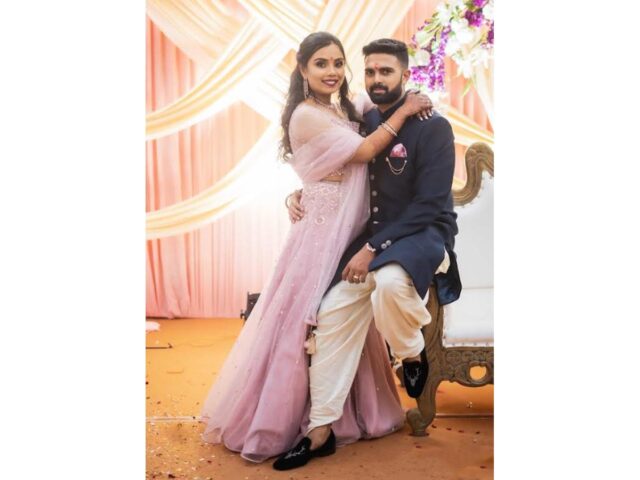Love defies boundaries, and in the lively heart of Kolkata, amidst its vibrant culture and diverse communities, reside Krupa Kamdar and Chandan Sahu. Their love story goes beyond societal norms, showcasing a journey marked by challenges and triumphs—a testament to the strength found in commitment and understanding.
Childhood neighbours to high school sweethearts

Krupa Kamdar
Picture this — childhood neighbours, separated by fate, only to reunite in high school, discovering a connection that surpassed time.Too filmy, isn’t it? Well, Krupa and Chandan first met when they were kids, aged eight or nine, as neighbours in Kolkata.
Subsequently, Krupa moved within the city, and the duo reunited during their high school years at the age of 16 in a tuition class. Little did they know that this reconnection would set the stage for a love story that defied conventions.
Two states, one love story

Krupa Kamdar
True to the saying, a ‘happily ever after’ is often earned through challenges. In the case of Krupa and Chandan, their love story faced hurdles due to their distinct cultural backgrounds: Krupa hails from a Gujarati Jain family, while Chandan is rooted in a Hindu family from Bihar. Krupa encountered significant obstacles as a result of this cultural disparity.
While Chandan’s family warmly embraced their son’s choice, exuding joy and acceptance, Krupa weathered a storm of disapproval from her own family due to caste differences. The cultural disparities posed a substantial obstacle, with Krupa’s family grappling to come to terms with the idea of their daughter marrying into a different cultural background.
Krupa reflected on the challenges, noting, “His family, being non-vegetarian and having a different culture, was the biggest challenge I had to face to make my parents agree to our wedding.” However, love prevailed, and the two states eventually met in harmony.

Instagram/Krupa Kamdar
In the pursuit of fortifying their bond, Krupa and Chandan adopted a patient approach, spending nearly seven-eight years dating before taking the plunge into marriage. Emphasising the essence of their journey, Krupa shared, “The cornerstone of accommodating each other in our lives was rooted in acceptance, adjustment, and a profound understanding that we are crafting a life together as distinct individuals.”
She highlighted their mutual acknowledgment that each of them led separate lives beyond their shared existence. It’s a mantra, they say, that perfectly encapsulates the art of maintaining boundaries for a happy married life.
Overcoming disagreements through conflict-resolution
In the early years of their marriage, disagreements were plentiful as they learned to live with each other. However, the couple evolved and matured, finding common ground and learning to communicate effectively. Their rule of addressing conflicts before bedtime ensured that no issue festered overnight, promoting a healthy and open line of communication.
From high school sweethearts to life partners, Krupa and Chandan’s understanding of love evolved. What began as the companionship of two young souls transformed into a deep connection where they found solace and completeness in each other.
Advice for those seeking love

Instagram/krupakamdar
Their advice to those seeking love resonates with wisdom and respect. They advocate for finding a partner who is not only loved by you but also accepted by your family. The couple emphasises the importance of making choices that align with both individual happiness and familial harmony.
In the spirit of ‘Pyaar dosti hai’ (Love is friendship), Krupa and Chandan epitomise the perfect couple to exemplify this notion. Reflecting on their journey, Krupa expressed, “The most liberating aspect of finding each other was the absence of awkwardness or discomfort. We married not just as lovers but as friends who had grown together, discovering solace in being true to ourselves.”
In the heart of Kolkata, Krupa and Chandan’s love story stands as a beacon of hope, reminding us all that love, when nurtured with patience, understanding, and acceptance, can conquer even the most formidable boundaries.
Social and lead images credits: Krupa Kamdar




